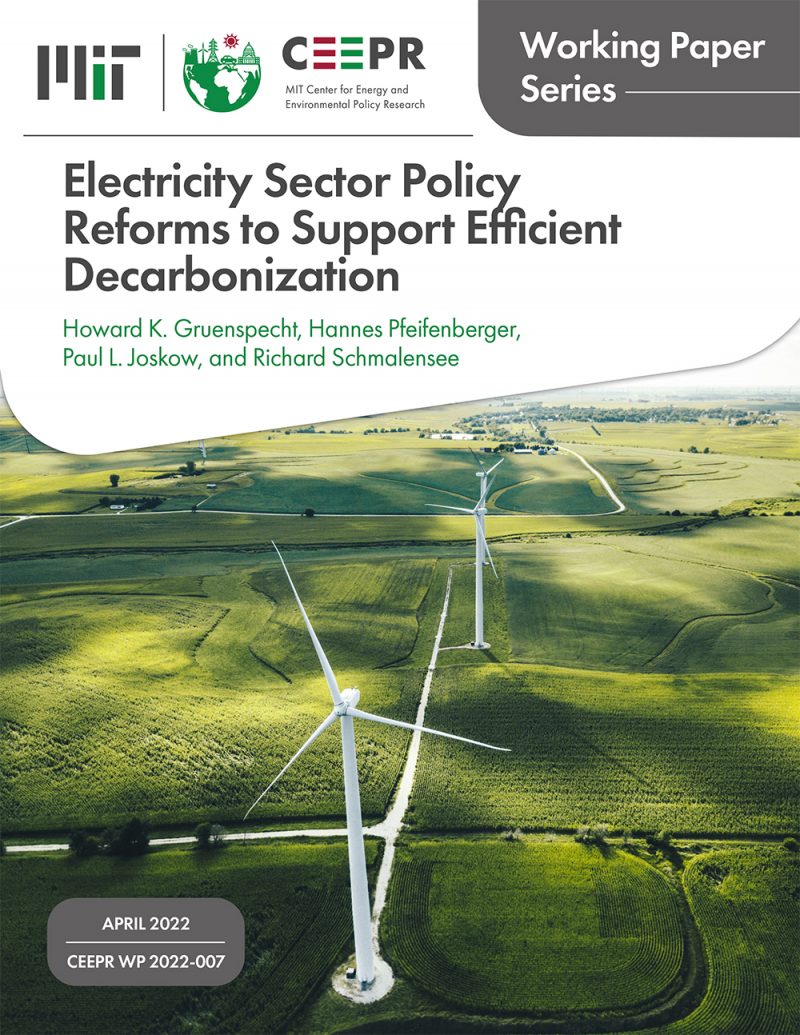Electricity Sector Policy Reforms to Support Efficient Decarbonization
Howard K. Gruenspecht, Hannes Pfeifenberger, Paul L. Joskow, Richard Schmalensee
April 2022
The final version of this paper will appear as Chapter 8 in the forthcoming MIT Energy Initiative study, The Future of Storage. Chapters referred to in this paper will be included in that study when it is published. In future decarbonized electric power systems, wind and solar generation will be much more important than in current systems. Unlike thermal generators, the outputs of wind and solar generators are intermittent: they vary over time and are imperfectly predictable. Storage technologies, if efficiently deployed and utilized, can play an important role in maintaining system reliability and controlling system costs in the face of generation intermittency. This paper considers how alternative regulatory rules and policy regimes will affect the ability of storage to contribute to reliable, cost-effective, and equitable power system and economy-wide decarbonization. The focus is mainly on the United States, though the general issues discussed are relevant in other developed regions. The basic conclusion is that future decarbonized power systems will differ from current systems in fundamental ways that will render today’s governance arrangements increasingly inadequate. We recommend a number of steps that should be taken now by regulators and others to deal with this challenge. Because effective governance of future decarbonized power systems will require development and deployment of new tools as well as reform of rules and regulations, research has an important role to play.



